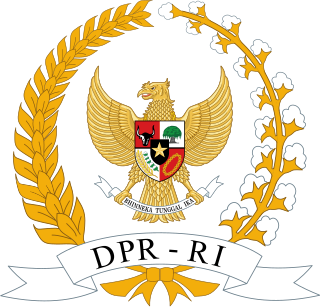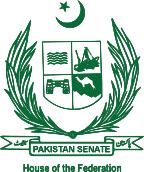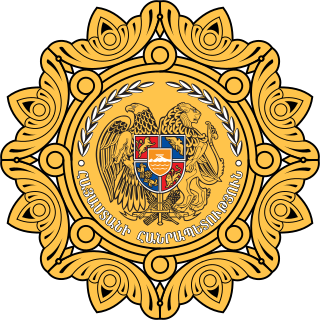 |
|---|
Parliamentary elections were held in Serbia in 1870.
 |
|---|
Parliamentary elections were held in Serbia in 1870.
Following the promulgation of the 1869 constitution by the Grand National Assembly elected in 1869, the Assembly was dissolved with the intent of convening an extraordinary Legislative Assembly to amend and pass laws that were in line with the new constitution. On 7 August 1870 a decree was passed setting the election date. [1]
As no new electoral law had been passed, the elections were held in accordance with the previous constitution. 97 deputies were elected, with the monarch given the right to appoint up to 32 members. [1]
Following the elections, Prince Milan appointed 24 members. [1] The Assembly convened on 14 September with Živko Karabiberović becoming president of the Assembly and Josif Pančić becoming vice-president. [1]
After passing most of the legislation required, the Assembly was dissolved the following year and fresh elections held in August 1871.

The Knesset is the unicameral legislature of Israel.

The president of the Reich was the German head of state under the Weimar constitution, which was officially in force from 1919 to 1945. In English he was usually simply referred to as the president of Germany.

The National Assembly is the unicameral legislature of Serbia. The assembly is composed of 250 deputies who are proportionally elected to four-year terms by secret ballot. The assembly elects a president (speaker) who presides over the sessions.
The dissolution of a legislative assembly is the simultaneous termination of service of all of its members, in anticipation that a successive legislative assembly will reconvene later with possibly different members. In a democracy, the new assembly is chosen by a general election. Dissolution is distinct on the one hand from abolition of the assembly, and on the other hand from its adjournment or prorogation, or the ending of a legislative session, any of which begins a period of inactivity after which it is anticipated that the same members will reassemble. For example, the "second session of the fifth parliament" could be followed by the "third session of the fifth parliament" after a prorogation, but would be followed by the "first session of the sixth parliament" after a dissolution.

The House of Representatives of the Republic of Indonesia is one of two elected chambers of the People's Consultative Assembly (MPR), the national legislature of Indonesia. It is considered the lower house, while the Regional Representative Council (DPD) serves as the upper house; while the Indonesian constitution does not explicitly mention the divide, the DPR enjoys more power, privilege, and prestige compared to the DPD.

The Senate of Pakistan or Aiwān-e-Bālā Pākistān, constitutionally the House of the Federation, is the upper house of the bicameral Parliament of Pakistan. As of 2023, It has a maximum membership of 96, of which 92 are elected by the provincial legislatures using single transferable vote. Four represent the Federal Capital. Members sit for terms lasting six years, with half of the house up for election every three years. Unlike the National Assembly, the Senate is a continuing chamber and hence not subject to dissolution.

The National Assembly of Pakistan is the lower house of the bicameral Parliament of Pakistan, with the upper house being the Senate. As of 2023, the National Assembly has a maximum membership of 336, of which 266 are directly elected by an adult universal suffrage and a first-past-the-post system to represent their respective constituencies, while 60 are elected on reserved seats for women and religious minorities from all over the country. Members hold their seats for five years or until the house is dissolved by the President on the advice of the Prime Minister. The house convenes at the Parliament House, Red Zone, Islamabad.

The Parliament of Pakistan is the supreme legislative body of the Islamic Republic of Pakistan. It is a bicameral federal legislature, composed of the President of Pakistan and two houses: the Senate and the National Assembly. The president, as head of the legislature, has the power to summon or prorogue either house of the Parliament. The president can dissolve the National Assembly, only on the Prime Minister's advice.

The Illinois General Assembly is the legislature of the U.S. state of Illinois. It has two chambers, the Illinois House of Representatives and the Illinois Senate. The General Assembly was created by the first state constitution adopted in 1818. As of 2023, the current General Assembly is the 103rd; the term of an assembly lasts two years.

The Parliament of Albania or Kuvendi is the unicameral representative body of the citizens of the Republic of Albania; it is Albania's legislature. The Parliament is composed of no less than 140 members elected to a four-year term on the basis of direct, universal, periodic and equal suffrage by secret ballot. The Parliament is presided over by the Speaker, who is assisted by at least one deputy speaker. The electoral system is based on party-list proportional representation. There are 12 multi-seat constituencies, corresponding to the country's counties.

The prime minister of Cambodia is the head of government of Cambodia. The prime minister is also the chairman of the Cabinet and leads the executive branch of the Royal Government of Cambodia. The prime minister is a member of parliament, and is appointed by the monarch for a term of five years. Since 1945, 37 individuals have served as prime minister; 33 as official prime ministers, and 4 in acting capacities. The current prime minister since 2023 is Hun Manet.

The president of Latvia is head of state and commander-in-chief of the National Armed Forces of the Republic of Latvia.

The Landtag of Thuringia is the parliament of the German federal state of Thuringia. It convenes in Erfurt and currently consists of 88 members from seven parties. According to the free state's constitution, the primary functions of the Landtag are to pass laws, elect the Minister-President and control the government of Thuringia.

The president of Armenia is the head of state and the guarantor of independence and territorial integrity of Armenia elected to a single seven-year term by the National Assembly of Armenia. Under Armenia's parliamentary system, the president is simply a figurehead and holds ceremonial duties, with most of the political power vested in the parliament and prime minister.

The Constitution of Costa Rica is the supreme law of Costa Rica. At the end of the 1948 Costa Rican Civil War, José Figueres Ferrer oversaw the Costa Rican Constitutional Assembly, which drafted the document. It was approved on 1949 November 7. Several older constitutions had been in effect starting from 1812, with the most recent former constitution ratified in 1871. The Costa Rican Constitution is remarkable in that in its Article 12 abolished the Costa Rican military, making it the second nation after Japan to do so by law. Another unusual clause is an amendment asserting the right to live in a healthy natural environment.

The Political Constitution of Costa Rica of 1871 has been the longest duration Constitution in the history of the country, as except for brief periods, it was in force between 1871 and 1949. Influenced by the Liberals, the Constitution of 1871 was quite pioneering for the time and, among other things, abolished the death penalty, decreed the freedom of religion, strengthened education and separated the three branches of the Republic.
Constitutional Assembly elections were held in Afghanistan in January 1977. The Constitutional Assembly was called to produce a new constitution four years after the coup that saw Mohammed Daoud Khan overthrow his cousin, King Mohammed Zahir Shah. The Assembly was part-elected and part-appointed.
Parliamentary elections were held in Serbia on 6 August 1871.
Parliamentary elections were held in Serbia in 1869 to elect a Grand National Assembly to approve a new constitution.